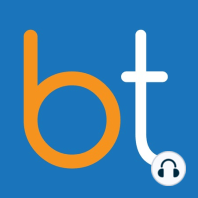54 min listen

Ep. 290 SVC Sharp Recanalizations with Dr. Abdulaziz Alharbi
Ep. 290 SVC Sharp Recanalizations with Dr. Abdulaziz Alharbi
ratings:
Length:
57 minutes
Released:
Feb 10, 2023
Format:
Podcast episode
Description
In this episode, Dr. Aaron Fritts interviews interventional radiologist Dr. Abdulaziz Alharbi of the Ministry of National Guard Health Affairs in Saudi Arabia. They discuss Dr. Alharbi’s approach to planning and performing sharp recanalization of the superior vena cava (SVC) for dialysis, transplant, and cancer patients.
---
CHECK OUT OUR SPONSOR
RADPAD® Radiation Protection
https://www.radpad.com/
---
EARN CME
Reflect on how this Podcast applies to your day-to-day and earn free AMA PRA Category 1 CMEs: https://earnc.me/sJLY3K
---
SHOW NOTES
Dr. Alharbi starts by describing how patients get referred to him, mainly due to end stage renal disease, chronic obstruction, and the need for dialysis access. Additionally, some patients seek access for central lines, and others have acute obstructions due to malignancies. Depending on the patient’s clinical condition, comorbidities, upcoming medical procedures, and anatomy, he will then decide if the patient is an appropriate candidate for SVC recanalization and obtain a CT scan. This imaging guides further decision-making on whether to access the obstruction from the internal jugular or brachiocephalic vein. The CT also helps him think about potential complications, such as cardiac tamponade in an obstruction close to the heart and pulmonary edema in all recanalizations. These risks are communicated to each patient accordingly.
Prior to starting the procedure, Dr. Alharbi ensures that there are multiple access sites prepared, including neck, bilateral arms, and femoral access. He also ensures that there are tools that he is comfortable using and a support team in place. A colleague will usually help him by obtaining femoral access and placing a target snare distal to the obstruction.
Dr. Alharbi walks us through a typical case. First he slowly advances a Chiba needle towards the target. His choice in sheath length depends on the length of the occlusion and the access point. A longer occlusion accessed through the brachiocephalic vein requires a longer sheath than a short occlusion accessed through the internal jugular vein. Next, we discuss stent sizing. Dr. Alharbi notes that it is preferable to oversize, to prevent stagnation of flow. In short occlusions, he uses bare self-expandable stents. In longer occlusions or cancer patients, he uses covered stents since there is more precise deployment.
The post-procedure anticoagulation regimen usually includes heparin and an antiplatelet agent for 2-3 weeks. Then, patients are switched to apixaban for 6 months. Beyond this, patients are either taken off of anticoagulation if they are asymptomatic and there is good SVC inflow, or reverted back to their preexisting anticoagulation regimen that they had due to other comorbidities.
---
RESOURCES
PAIRS 2023:
https://pairscongress.com/
Dr. Abdulaziz Alharbi Twitter:
https://twitter.com/DrAlHarbiA_Aziz
---
CHECK OUT OUR SPONSOR
RADPAD® Radiation Protection
https://www.radpad.com/
---
EARN CME
Reflect on how this Podcast applies to your day-to-day and earn free AMA PRA Category 1 CMEs: https://earnc.me/sJLY3K
---
SHOW NOTES
Dr. Alharbi starts by describing how patients get referred to him, mainly due to end stage renal disease, chronic obstruction, and the need for dialysis access. Additionally, some patients seek access for central lines, and others have acute obstructions due to malignancies. Depending on the patient’s clinical condition, comorbidities, upcoming medical procedures, and anatomy, he will then decide if the patient is an appropriate candidate for SVC recanalization and obtain a CT scan. This imaging guides further decision-making on whether to access the obstruction from the internal jugular or brachiocephalic vein. The CT also helps him think about potential complications, such as cardiac tamponade in an obstruction close to the heart and pulmonary edema in all recanalizations. These risks are communicated to each patient accordingly.
Prior to starting the procedure, Dr. Alharbi ensures that there are multiple access sites prepared, including neck, bilateral arms, and femoral access. He also ensures that there are tools that he is comfortable using and a support team in place. A colleague will usually help him by obtaining femoral access and placing a target snare distal to the obstruction.
Dr. Alharbi walks us through a typical case. First he slowly advances a Chiba needle towards the target. His choice in sheath length depends on the length of the occlusion and the access point. A longer occlusion accessed through the brachiocephalic vein requires a longer sheath than a short occlusion accessed through the internal jugular vein. Next, we discuss stent sizing. Dr. Alharbi notes that it is preferable to oversize, to prevent stagnation of flow. In short occlusions, he uses bare self-expandable stents. In longer occlusions or cancer patients, he uses covered stents since there is more precise deployment.
The post-procedure anticoagulation regimen usually includes heparin and an antiplatelet agent for 2-3 weeks. Then, patients are switched to apixaban for 6 months. Beyond this, patients are either taken off of anticoagulation if they are asymptomatic and there is good SVC inflow, or reverted back to their preexisting anticoagulation regimen that they had due to other comorbidities.
---
RESOURCES
PAIRS 2023:
https://pairscongress.com/
Dr. Abdulaziz Alharbi Twitter:
https://twitter.com/DrAlHarbiA_Aziz
Released:
Feb 10, 2023
Format:
Podcast episode
Titles in the series (100)
Ep. 6 Setting up a Vein Clinic with Dr. Aaron Shiloh: Episode 6 with Dr. Aaron Shiloh, MD FSIR discussi… by BackTable Vascular & Interventional